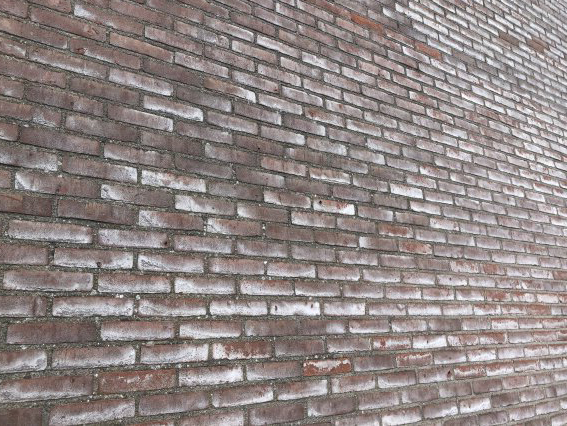Kort samengevat
Correct jointing is not only important for the appearance, but it also ensures greater durability of the façade. Various problems, including moisture pollution, are a result of cracks and cracks in the jointing.

The joints of a façade determine the appearance of the building, façade or wall during both new construction and renovation. In addition to the different types of joints, e.g. a flat brushed joint, cut joint, cut joints... you can also play with the color of the joint. Not only the aesthetic aspect is important when repairing joints, but also the durability of the joint mortar.
The sustainable grout for historic buildings
When renovating or restoring historic buildings, it is important to use the right type of grout. This takes into account the moisture load of the façade, the hardness of the type of stone used and the composition of the building's used mortar. Buildings from before WWI are usually built with lime-bound types of mortar. This mainly used local lime with different characteristics. To restore these historic buildings, it is best to use compatible lime-bound mortar species.
NHL 5 based mortar
NHL 5 is a lime binder with a high compressive strength (5 MPa in 28 days). It is highly resistant to frost, hardens faster and has a higher resistance to the crystallization of salts. NHL 5 is therefore ideal where greater hardness and pressure are required, such as lime concrete, masonry mortars, etc. This makes it ideal for façade restoration with heavy loads or built in hard (brick) bricks in both a colder climate or a maritime climate. NHL 5 was used in the repairs below sea level of the Mont-Saint-Michel ramparts.

NHL 3.5 based mortar
NHL 3.5 is a lime binder for preparing mortars and plasters for both interior and exterior applications with a medium pressure resistance (3.5 MPa in 28 days). This type of NHL is ideal for masonry and jointing in a temperate climate with mild winters.
In addition to pure natural hydraulic lime, it is also possible to add colored lime. For this purpose, we have a formulated lime product, RC Astivo. We use the NHL 3.5 as a basis and add mineral pigments to achieve the desired color. You can add sand yourself in a ratio of 1:4 to 1:1.5 depending on the type of grout you want to obtain.

NHL 2 based mortar
NHL 2 has a low pressure resistance (2 MPa in 28 days) and is therefore an ideal binding agent for plasters, but less suitable as a grout in our moderate maritime climate/humid climate. If you still want to add with an NHL 2, you should take into account a longer curing period and add more lime to the mortar. All this means a higher cost of the final grout!
The importance of the correct mixing ratio
The repairs are mainly carried out with NHL 3.5 due to the excellent compressive strength and compatibility of the existing masonry. By default, grouting is carried out with a ratio of 1 part of NHL 3.5 and 2.5 to 3 parts of sand. We recommend always working with dune sand or Rhine sand to stay as close to the color of the pigment as possible. For certain applications, such as cutting and cutting joints, it is easier for the joint mortar to be “greasier” than normal. This is achieved by adding less sand and adding it with a ratio of 1 to 1.5.
The table below shows the lime/sand mixing ratio with the respective curing period and compressive strength.
*EN 459-1 (1:1 mix ratio by volume with ISO 679 sand)


.avif)


